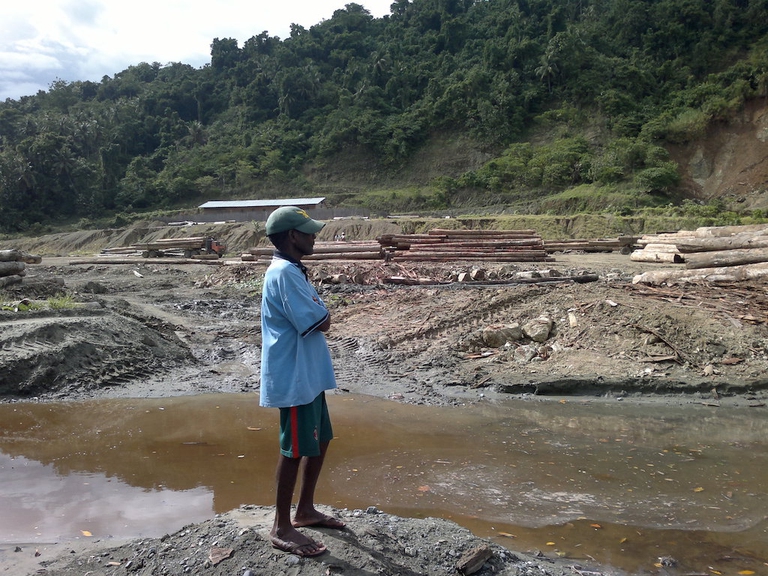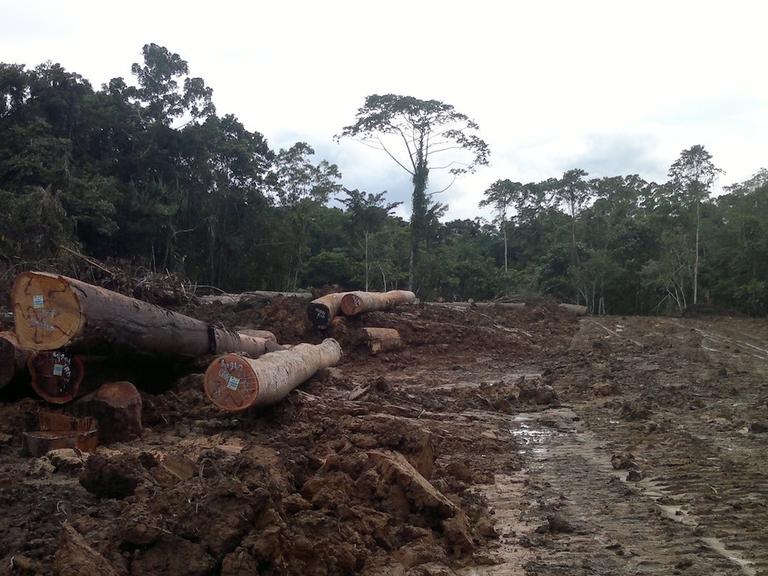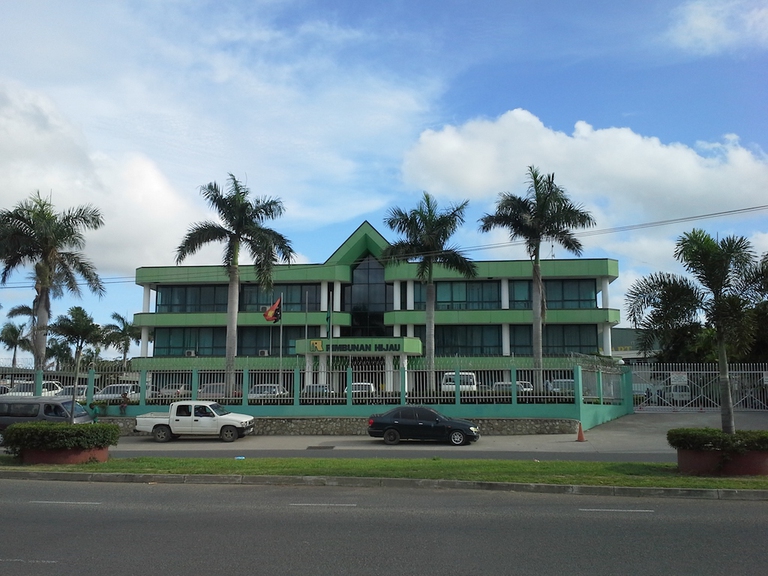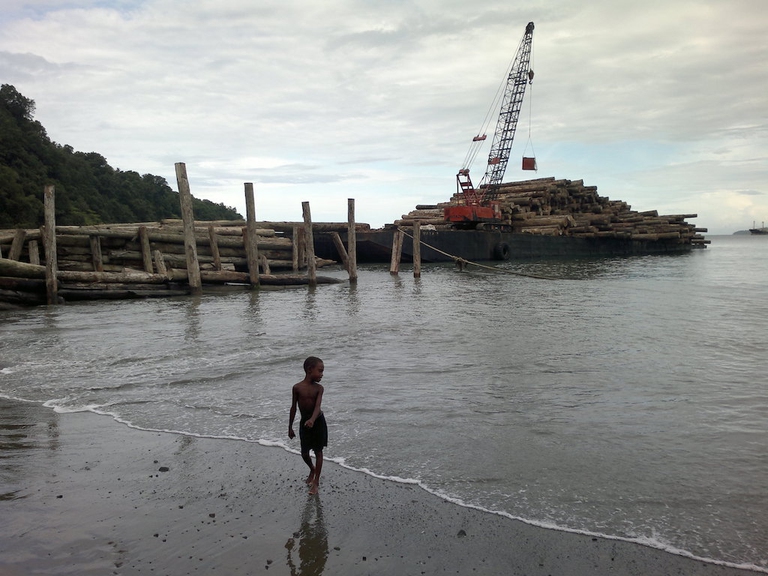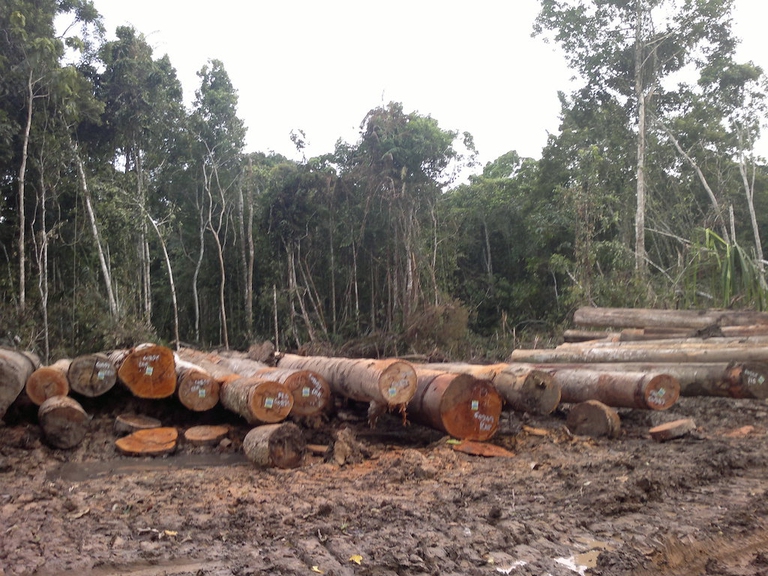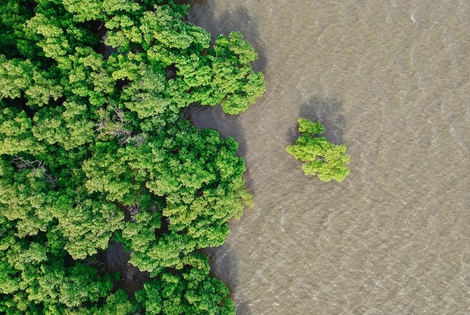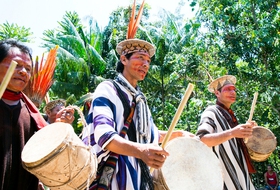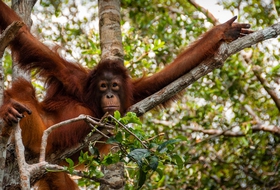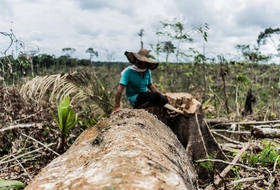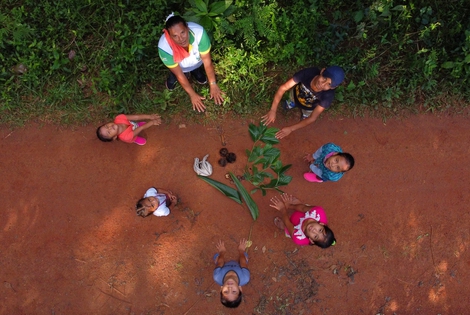
The Amazon became an alternative classroom during the pandemic. Now, the educational forest in Batraja, Bolivia, lives on to teach children and adults the value of nature.
The destruction of one of the most biologically diverse ecosystems on Earth – home to more than six per cent of the planet’s biodiversity with 20,000 species of higher plants and more than 2,000 tree species – isn’t only a disaster for all but also a catastrophe for Papua New Guineans, whose livelihoods and culture
The destruction of one of the most biologically diverse ecosystems on Earth – home to more than six per cent of the planet’s biodiversity with 20,000 species of higher plants and more than 2,000 tree species – isn’t only a disaster for all but also a catastrophe for Papua New Guineans, whose livelihoods and culture are directly threatened. 83 per cent of its population lives in rural areas, mostly in small communities of a few hundred villagers who maintain an intimate relationship with the land and natural resources. With their traditional lifestyles based on small-scale agriculture, hunting, fishing and gathering, people are highly dependent on the forests for their food and medicines, soil and watershed protection, materials for construction as well as cultural activities and customs.
Read more: The multi-coloured beauty of the world’s indigenous cultures, through Jimmy Nelson’s photographs
Papua New Guinea (PNG) has doubled its export of tropical timber to international markets in just ten years, contributing three to four million cubic metres of timber every single year since 2010. The country became the world’s largest exporter of tropical wood in 2014, surpassing Malaysia, which had held the top spot for the past several decades. Over 90 per cent of PNG’s timber is exported to China.
Responding to the concerns raised by NGOs and scientists, the industry and its proponents argue that logging contributes to the country’s development through the tax revenue the government receives on log exports. However, research by the Oakland Institute reveals that most logging companies barely declare any profits. The think tank’s latest report, The Great Timber Heist-Continued: Tax Evasion and Illegal Logging in Papua New Guinea, analyses the activities of 16 subsidiaries of PNG’s largest log exporter, the Malaysian Rimbunan Hijau (RH) Group.
According to their records, these companies have doubled their financial losses in just six years while increasing their exports of tropical timber by over 40 per cent. A puzzling finding of the research is that the more these companies harvest and export timber, the more money they declare in losses. Not only do they almost never pay any income tax, but their continued losses allow them to accumulate an astounding volume of tax credits – making it likely that they won’t pay any income tax for years to come.
Read more: Paradise lost, how we’ve destroyed 7% of the Earth’s pristine forests since 2000
Artificially minimizing profit may be made possible by underpricing, through which the declared value of exported timber is understated, and overpricing, wherein expenses for the purchase of goods and services are overstated. Both might be happening in PNG. The average declared export prices of PNG timber are generally 30 to 50 per cent below world prices, which suggests undervaluing of exports by the loggers, and therefore their revenues. The complex financial structure of logging firms also leads to a real opportunity for both overpricing and underpricing.
Many of the parent companies of those operating in PNG are located in tax havens, primarily the British Virgin Islands, known for facilitating illicit financial flows. Moreover, most of the studied RH companies purchase significant amounts of goods and services from sister companies in the same group. In one single project in West Pomio, the RH subsidiary Gilford Ltd’s records indicate financial transactions with 16 other subsidiaries of the same group. This raises the possibility of companies charging each other an artificially high price for goods, equipment and services, thereby increasing their operational expenses and artificially reducing their profits.
After the Oakland Institute first alerted the issue through the first report on illegal logging and tax evasion in 2016, the PNG government made an attempt to increase the log export tax the following year through the introduction of a progressive tax system. The new system resulted in a four per cent increase – from 27 per cent to 31 per cent – in the average tax rate paid by exporters on the value of exported timber. The Minister of Forests Douglas Tomuriesa harshly criticized the increase, lamenting it would gravely undermine the interests of logging companies and lead to a loss in revenue for PNG. Bob Tate of the Papua New Guinea Forest Industries Association (PNGFIA) echoed these claims, arguing that the tax increase, combined with a falling demand for tropical timber, “will force a number of logging companies out of business, bringing the industry to its knees.”
One may legitimately question Tate’s credibility given that he works for an industry that is far from transparent in its operations and notoriously involved in a number of illegal activities. Not responding to requests for an interview, Tate failed to explain how these companies continue to be in business if they don’t make profits. Furthermore, the Oakland Institute’s latest findings clearly refute critics’ claims showing that the tax increase has generated additional fiscal revenue while contributing only to a modest drop in exports in 2017. The logging industry is clearly far from the “disaster” scenario alleged by its proponents. However, the recent tax increase may be a step in the right direction but isn’t enough to curb illegal logging operations, which continue to expand.
The increase in log exports in recent years is largely the result of illegally-granted Special Agriculture and Business Leases (SABLs) in PNG, which added 5.5 million hectares of land to the ten million hectares already under active logging concessions. Despite the government’s 2014 promise that all illegal deals would be canceled, to date no decisive action has been taken to stop illegal logging or return land to the people. At the moment, one third of the country is in the hands of foreign interests for logging and palm oil operations.
The uncovering of the logging industry’s financial practices in PNG by the Oakland Institute raises important questions about the extent of tax evasion and financial misreporting in the sector. Whereas around the world international corporations are being called upon for similar tax evasion practices, logging companies in PNG continue to operate with impunity. The loggers aren’t just depriving the country of public revenue but also plundering the forests and natural resources that are essential to local communities for their livelihoods, economy and social fabric. The time has come for the government of PNG to take action to defend the customary rights of its citizens and stop illegal activities, tax evasion, and other wrongdoings of the logging and oil palm companies.
Siamo anche su WhatsApp. Segui il canale ufficiale LifeGate per restare aggiornata, aggiornato sulle ultime notizie e sulle nostre attività.
![]()
Quest'opera è distribuita con Licenza Creative Commons Attribuzione - Non commerciale - Non opere derivate 4.0 Internazionale.
The Amazon became an alternative classroom during the pandemic. Now, the educational forest in Batraja, Bolivia, lives on to teach children and adults the value of nature.
Our species took its first steps in a world covered in trees. Today, forests offer us sustenance, shelter, and clean the air that we breathe.
Bangladesh suffered widespread damage as a result of Cyclone Amphan. Yet the Sundarbans mangrove forest acted as a natural barrier protecting the country from further destruction, as it has done countless times before.
On top of a 2.4 million dollar compensation, the indigenous Ashaninka people will receive an official apology from the companies who deforested their lands in the 1980s.
The tapir was reintroduced into Brazil’s Atlantic Forest, the country’s most at-risk ecosystem. The species can play a key role in the forest’s recovery.
Forests are home to 80 per cent of the world’s terrestrial biodiversity. This year’s International Day of Forests highlights the urgent changes needed to save them.
After a legal battle that lasted two years, Indonesia’s Supreme Court has revoked the permit to mine for coal in the forests of South Kalimantan in Borneo.
The list of human and animal victims of the Australia wildfires keeps growing – one species might already have gone extinct – as the smoke even reaches South America.
Areas where the FARC guerrilla used to hold power in Colombia have faced record deforestation. Farmers cut down trees, burn land and plant grass for cows. Because, “what else can we do for a living here in the Colombian Amazon”? An intimate report from the heart of the felled forest in Caquetá.

